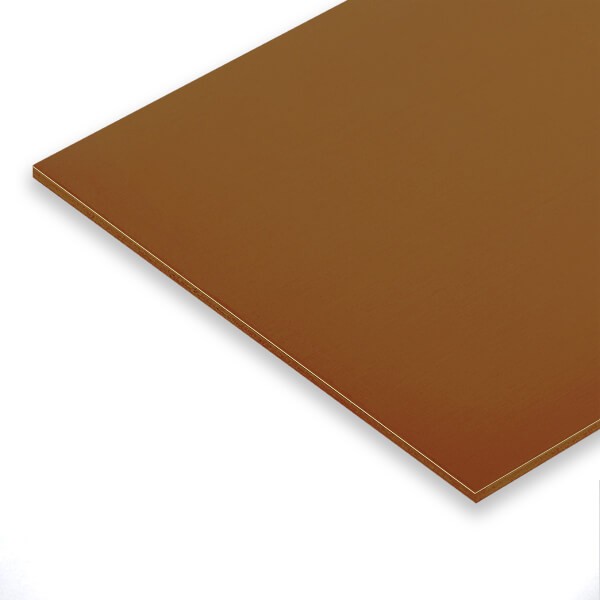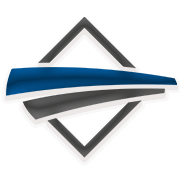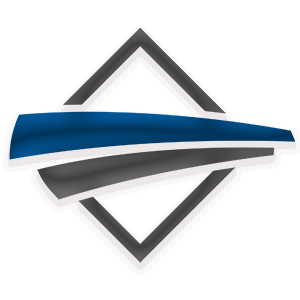
- Order number: 70.10.010Z
- Note: Larger dimensions on request!
Bronze Sheet - Bronze Plate
Length and width in mm - freely configurable steps - Tolerance cut: +/- 1mm
Bronze is an alloy of copper (Cu) and tin (Sn). A distinction is made between wrought and cast alloys depending on the processing.
Typical application examples are connectors, contact pins, as well as general stamped and bent parts and springs, where good electrical conductivity is necessaryIn contrast to brass, bronze can also be used in vacuum technology.
Properties material CuSn6 - 2.1020
The bronze alloy CuSn6 - also called two-alloy - is the most frequently used type of bronze with a tin content of approx. 6%.
The alloy CuSn6 is characterized by a particularly favorable combination of cold formability, strength and hardness.
In addition, bronze is very corrosion and wear-resistant as well as seawater-resistant and has good tinnability.
Technical information
Bronze cannot be magnetized and therefore cannot be clamped on grinding machines. Bronze plates can be laser cut well and are very easy to etch.
CuSn6 is easy to weld with all processes. However, the heat input at the weld seam can lead to a structural change that reduces the strength. Bronze is very suitable for soft soldering.
The high strength of the bronze plates or the material is achieved by cold forming during rolling. Therefore, the direction of rolling has a great influence on bending.
Other applications / properties:
- good corrosion resistance
- easy to solder
- easy to polish
- good cold formability
- good spring properties
- Use: springs of all kinds, metal hoses, etc.
- Application: paper, pulp, textile and chemical industry as well as in ship, machine and apparatus construction, tombstones
| Material: | Bronze |
| Thickness: | 1,0 mm |
| EN Material - Name: | CW452K |
| DIN Material - Name: | CuSn6 |
| Alloy: | CuSn6 |
| Material - Number: | 2.1020 |
| ASTM/AISI (USA): | C51900 |
| Surface: | cold-rolled |
| Delivery - State: | R560 180-210 HV |
| Norm: | EN 1652 |
super Service
Firma ist sehr empfehlenswert
Das Blech wurde sauber zugeschnitten und war maßgenau. Schneller Versand und sehr gut verpackt.
schnelle Lieferung auch von Kleinstmengen, gut!
Sehr guter Service
Sehr schnelle und zuverlässige Lieferung des Blechs, zudem vorbildlich verpackt.








